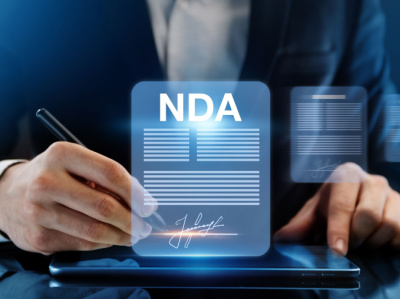Why Business Transactions Should Include Non-Disclosure Agreements

In fast-paced and competitive business environments, protecting confidential information is crucial. One effective way to safeguard sensitive data during business transactions such as mergers and acquisitions is through the use of non-disclosure agreements (NDAs). These legal agreements establish a framework of trust and confidentiality between parties involved in a transaction, preventing unauthorized disclosure or use of valuable information. An experienced attorney can ensure that the parties to a transaction fully understand how non-disclosure agreements will affect them while also ensuring that the terms of an NDA will provide the necessary legal protections.
The Importance of Non-Disclosure Agreements
Business transactions that involve sharing proprietary knowledge, trade secrets, client lists, financial data, or any other confidential information should always incorporate an NDA. Here are several reasons why non-disclosure agreements are essential for businesses:
- Protecting intellectual property: Businesses invest significant time and resources into developing unique ideas, innovations, and processes. An NDA ensures that these assets will be protected from unauthorized disclosure or exploitation by competitors.
- Maintaining competitive advantage: By signing an NDA before engaging in a transaction with another party, a business can maintain a competitive edge without worrying about others gaining access to proprietary knowledge.
- Promoting open communication: When both parties involved in a transaction have signed an NDA, it fosters trust and encourages open communication. This allows for productive negotiations while ensuring that everyone respects the boundaries set forth in the agreement.
- Safeguarding client information: If a business deals with sensitive client data such as medical records, financial statements, or other personal information, an NDA can help ensure that this information will remain confidential during any interactions with third parties.
- Avoiding legal disputes: Including clear terms related to confidentiality obligations and consequences for breaching the NDA can help prevent future legal disputes and litigation. An NDA may also provide a recourse for legal action if confidential information is mishandled or disclosed without authorization.
The Elements of an Effective Non-Disclosure Agreement
To ensure that a non-disclosure agreement is enforceable and provides adequate protection, certain key elements should be included:
- Definition of confidential information: An agreement should clearly define what constitutes confidential information that is protected from disclosure. This may include proprietary data, business strategies, financial records, client lists, trade secrets, or any other sensitive information specific to a business or industry.
- Obligations: An NDA should lay out in detail the responsibilities of both parties regarding handling confidential information. It can also specify any restrictions on disclosure to third parties and outline the parties must store and protect the shared information with reasonable security measures.
- Duration of confidentiality obligations: An agreement should specify how long the confidentiality obligations will last after the termination of the transaction or relationship. The duration generally depends on factors such as the nature of the industry or type of information being shared.
- Circumstances under which disclosure is allowed: An NDA may include provisions that allow for authorized disclosures under certain circumstances. These may include disclosures required by law or court order. An agreement should still emphasize caution in sharing any protected information.
- Rights and remedies in case of breach: An NDA may outline the potential consequences for violating confidentiality obligations. This can include seeking injunctive relief, monetary damages, or any other appropriate remedies available under the law.
Contact Our DuPage County Non-Disclosure Agreement Attorney
If you require legal guidance regarding non-disclosure agreements or any other aspect of business transactions in Illinois, the skilled attorney at the Gierach Law Firm is ready to assist you. With years of experience providing comprehensive legal services to businesses across various industries, our Naperville business transactions lawyer can help protect your interests while working with you to develop strategies for success. To schedule a consultation, please contact us at 630-756-1160.
Practice Areas
Archive
+2018
+2016
Please note: These blogs have been created over a period of time and laws and information can change. For the most current information on a topic you are interested in please seek proper legal counsel.














